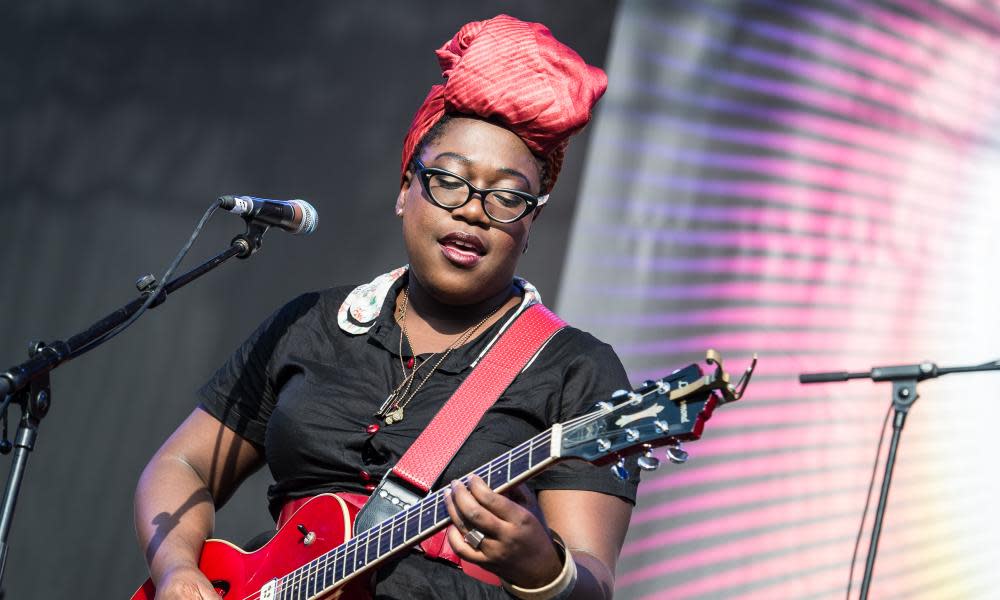Mélissa Laveaux: Radio Siwèl review – seductive sounds of Haiti

Haiti’s turbulent, often unhappy history is studded with splendid music, most of it little heard by comparison to its Caribbean neighbours. Mélissa Laveaux, born in Ottawa to Haitian parents, plays neither the lavish orchestral music called compas, nor the rootsy, drum-heavy style of groups such as Boukman Eksperyans. Her previous two albums have mixed folkish originals with indie rock, and even a cover of Eartha Kitt’s I Want to Be Evil.
Here, she delves into her Haitian heritage, restyling Creole folk songs dealing with the capricious pantheon of Vodou deities, and numbers made famous by precursors such as Martha Jean-Claude, who protested (subtly but dangerously) against the US occupation of Haiti between 1915 and 1934. The album sounds far from folky, however. Laveaux’s spiky electric guitar is to the fore, abetted by Drew Gonsalves of the redoubtable soca band Kobo Town, while French producers Albert supply an eclectic backdrop that veers between the trip-hop grooves of Nan Fon Bwa, the Parisienne pop of Totalito, and the angry fuzz guitar of Nibo. On top, Laveaux’s vocals dance, yelp and croon in joyous, idiosyncratic fashion. It’s easy to forget there’s plenty of protest going on; Jolibwa, the one Laveaux original, celebrates a murdered journalist. A seductive, original piece of work.

 Yahoo News
Yahoo News 
